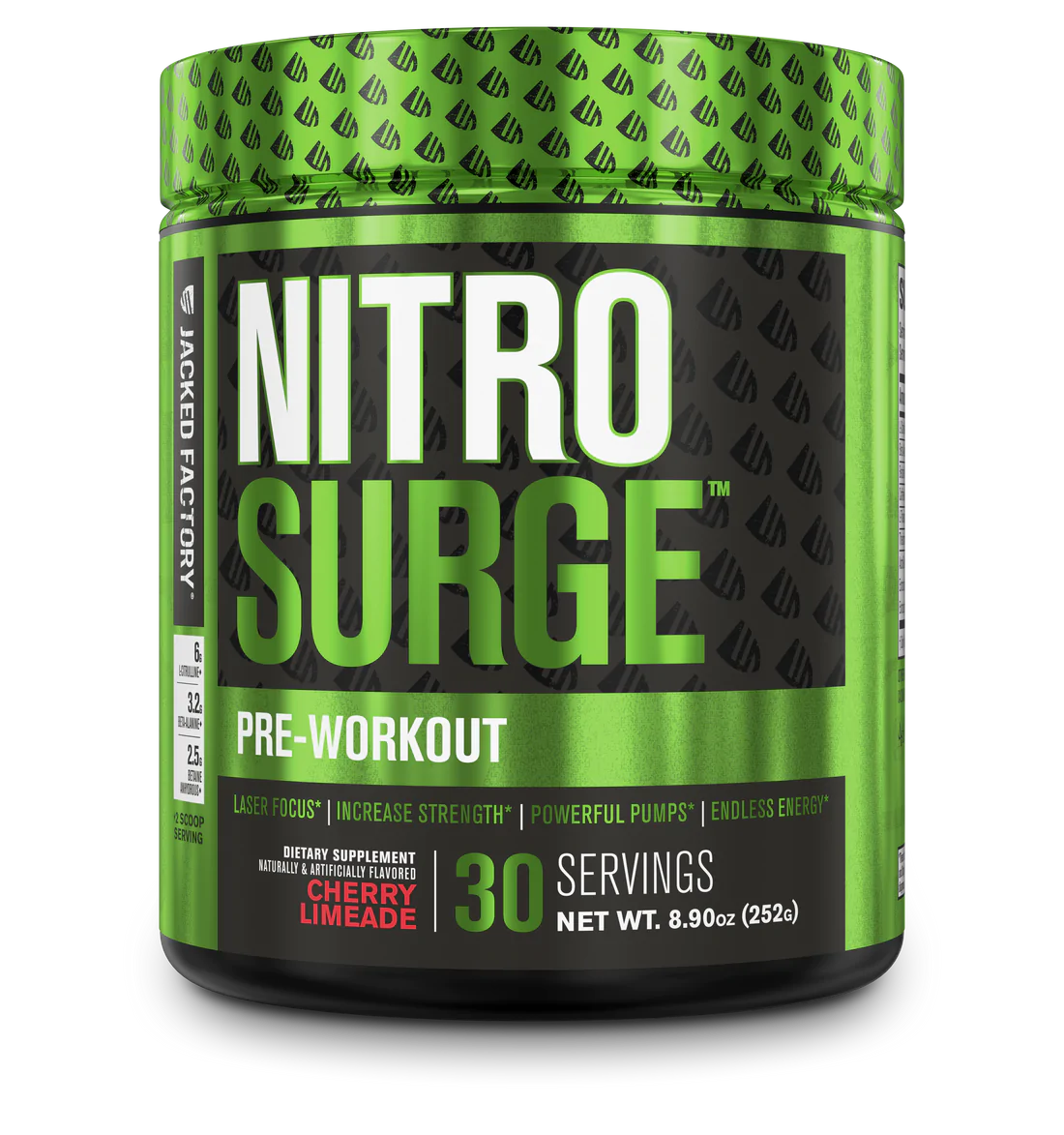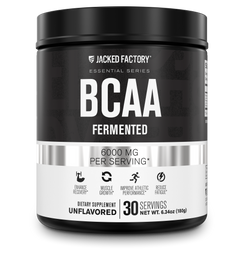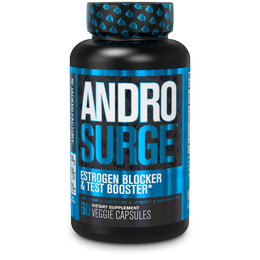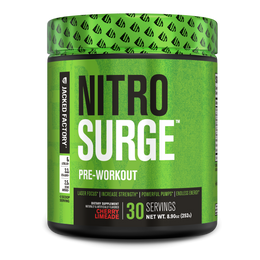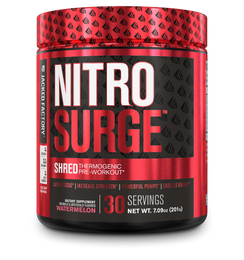5 Tips for Building Muscle Backed by Science
1. Consume a calorie surplus
The first golden rule of bodybuilding is that you must eat to grow. Your body needs to enter a calorie surplus in order to gain weight and build muscle mass.
If you are in a calorie deficit or at maintenance, your body will not have the proper fuel and extra amino acids to pack on slabs of muscle.
If you are consuming less energy than your body burns, you are putting it into a calorie deficit. This makes it impossible to gain muscle mass because your body’s ability to create muscle proteins is impaired.
So we know that you need to consume a calorie surplus to gain lean muscle mass, but how much of a calorie surplus is ideal? If your goal is to gain lean muscle mass without any additional fat storage, here is a good formula to follow:
Figuring Out Your Estimated TDEE (Total Daily Energy Expenditure)
You first need to calculate what your TDEE or total daily energy expenditure is. This is how many calories your body burns in 24 hours while working, resting, and exercising.
Plain and simple, if you eat more calories then your body requires, you will gain weight!
Your TDEE will fluctuate depending on a number of factors such as exercise level and occupation.
It’s important not to confuse TDEE with BMR.
You are going to have to experiment to nail down approximately what your TDEE is, so this calculator will help: TDEE calculator.
Small Surplus
The next step is to start off consuming a small calorie surplus each day and carefully track your results.
A good rule of thumb is to start off at a 250-calorie surplus and see how you are progressing. Make sure to get in at least 1 gram of protein per pound of bodyweight.
Hop on the scale at the end of each week and see how much weight you were able to gain. If you gained anywhere from 0.5-1 lbs, you are on the right track. Otherwise, adjust your calories up or down.
2. Consume enough protein
Everybody knows that your body needs protein to build muscle, but how much do you exactly need?
Consuming enough protein ensures that your body has the crucial amino acids it needs to synthesize its own proteins and enter a state that is called “protein synthesis.”
Your body needs a constant supply of these muscle-building amino acids to repair and rebuild bigger and stronger, and these amino acids are found in the proteins you consume.
The big question is how much protein is ideal for maximizing lean muscle growth without additional fat storage?
Consuming around 1 gram of protein for every pound of body weight has been the bodybuilding standard for years, so let’s dive into a few research studies to further evaluate the exact amount of protein needed to build muscle.
A popular study by McMaster University found that between 0.6 and 0.8 grams per pound of body weight are needed for stimulating the maximum degree of protein synthesis.
This study also pointed out that more protein may be needed in times of dieting and frequent or high-intensity training.
Another study from the University of Western Ontario cited around the same number, saying that 0.6 to 0.8 grams of protein are needed to stimulate maximum levels of protein synthesis.
If you are frequently training and already have a fairly lean body, chances are that you will need to consume between 1-1.2 grams of protein per pound of body weight to maximize protein synthesis.
It is also commonly recognized that higher levels of protein intake are needed when someone is cutting to lose body fat while trying to maintain lean muscle mass.
Many bodybuilders who possess the greatest amount of lean muscle mass with the least amount of body fat often consume between 1.2-1.5 grams of protein per pound of body weight per day.
Keep it simple: you need protein to build lean muscle mass. If you are a serious athlete or experienced lifter then you very likely need at least 1 gram of protein per pound of bodyweight.
3. Maximize your anabolic window
Insulin is the most anabolic hormone in your body. Following a workout, it is vital that you consume a post-workout supplement that contains protein and fast carbohydrates to spike your insulin.
Spiking insulin post workout has numerous muscle building benefits:
- Shuttles amino acids into cells for speedy growth and recovery
- Helps replenish muscle glycogen post-workout
- Helps prevent catabolism following an intense training session
If you want to build lean muscle mass quickly, you need to consume a source of fast digesting carbohydrates and pair it with a fast digesting protein source.
A popular post-workout shake combination is whey protein powder with dextrose or maltodextrin.
You should be consuming a 2:1 ratio of carbohydrates to protein for maximum benefit.
This ratio will ensure that your body has enough glucose molecules to transport the amino acids from the protein into your body and initiate protein synthesis. It will also replenish those drained glycogen levels, preparing you for the next workout.
The recommended amount of protein and fast digesting carbohydrates to consume post workout is:
- Whey Protein: 0.2 grams per lb of bodyweight
- Fast Carbs: 0.4 grams per lb of bodyweight
For example, if you are a 200-pound guy you would consume 40 grams of protein and 80 grams of carbohydrates.
4. Cholesterol increases testosterone
You probably know that testosterone is the almighty male hormone responsible for things like aggression, deep voice, body hair, facial hair, and most importantly, building lean muscle mass.
Every hardcore fitness enthusiast strives to have the maximum amount of testosterone output. The more testosterone that your body can produce, the more lean muscle mass you will have the capacity to build.
Why is cholesterol so important? Cholesterol is actually a precursor to testosterone production.
The Leydig cells in your body convert cholesterol into testosterone. Cholesterol is, in fact, the building block of the male hormone testosterone. Your Leydig cells get the majority of what they need by absorbing the cholesterol present in your body.
What does this mean? Consume foods that have cholesterol in them!
You will find that the foods that are highest in cholesterol are actually bodybuilding staple foods. This makes perfect sense, and it is no wonder that bodybuilders have used these foods since the beginning of muscle building.
The following foods are all abundant sources of cholesterol and thus will help you build muscle mass:
- Whole Eggs
- Grass Fed Beef
- Chicken
- Turkey
- Tuna
5. Progressive overload leads to growth
One of the most important things that you can do to increase the amount of lean muscle mass on your frame is to concentrate on training with progressive overload.
Progressive overload simply means that you are gradually increasing the amount of overload on your muscles each workout.
For example, if you bench pressed 225 lbs for 8 repetitions in your previous workout, you should make sure to push yourself and go for 230 lbs at 8 reps or 225 lbs for 10 reps.
The science behind progressive overload training states that progressively placing greater than normal demands on the exercising musculature is required for a training adaptation to take place. Without overload, there is no adaptation by the body.
The neuromuscular adaptations will occur first, followed by an increase in muscle and connective tissue strength.
This all may seem like a lot of jargon so in lemans terms: keep pushing yourself to lift a little bit more each workout if you want to keep building muscle!
If you are looking to amplify your progress, consider adding in a proven pre-workout supplement like ALTIUS to really take your training to a new level.

